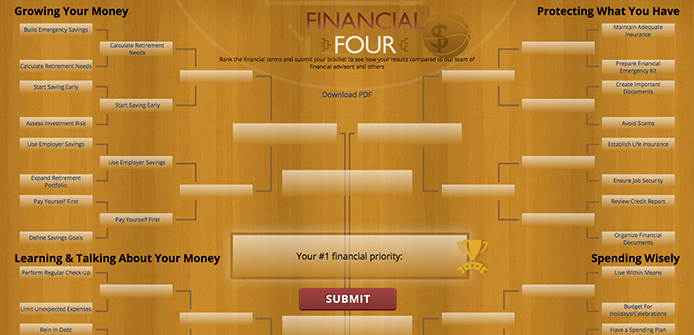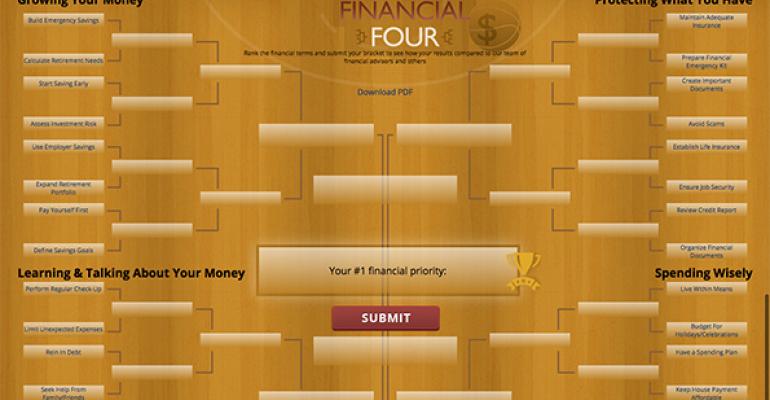
The National Endowment for Financial Education and the Financial Planning Association have launched a tournament bracket of their own—to help investors and consumers determine their top four financial priorities. The groups also had financial planners and advisors fill out the bracket on what they recommend clients should be thinking about in 2015. Their “Financial Four”? Start saving early, use credit responsibly, live within your means, and ensure job security. Fill out the bracket yourself here.

Though some remain skeptical that robo-advisors will be more than a passing fad, a new study found that the technology has already made a significant impact on the wealth management industry. According to Swiss research company MyPrivateBanking Research, robos are forcing advisors to accelerate their adoption of technology and re-examine several accepting beliefs about interacting with clients. Others argue that the success of robos is threatening active management and the “folklore of finance” that an investor should hunt for market-beating alpha.

Funding an individual retirement account is a low priority for a majority of Americans. In a recent TIAA-CREF survey, 24 percent of Americans said short-term savings for things like vacations and household appliances takes priority over contributing to an IRA account. Only about 8 percent said contributing to an IRA is a top priority. Why the low interest? It could be a lack of knowledge, with 39 percent of respondents indicating they don’t know enough about IRAs to contribute to one.
Late Night Emails Are Productivity Killers

How often do you send a late night email to colleagues or members of your team? If you do it at all, it’s too often, argues productivity expert Maura Thomas in the Harvard Business Review. Thomas writes that late night work emails are sent either with the intention that employees respond right away, prodding them to demonstrate their ambition, or simply because you think of something and want to dash it off before you forget, in which case you are still unintentionally chaining employees to the job. Both fly in the face of new evidence that the always-on employee is, in fact, less productive, engaged and creative than employees (and managers) who take time to truly disengage. She also suggests ditching the phrase “time management” for the more productive skill of “attention management.”

